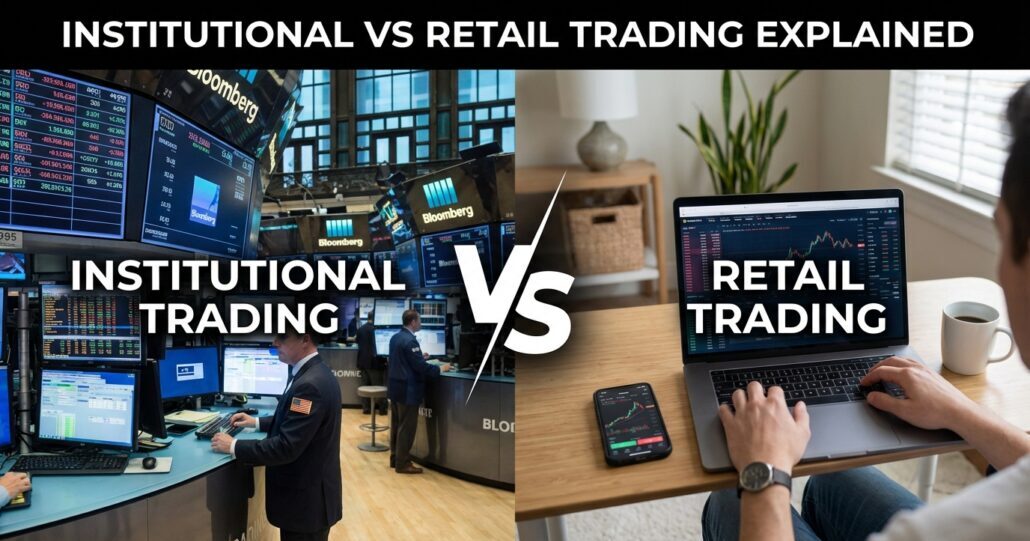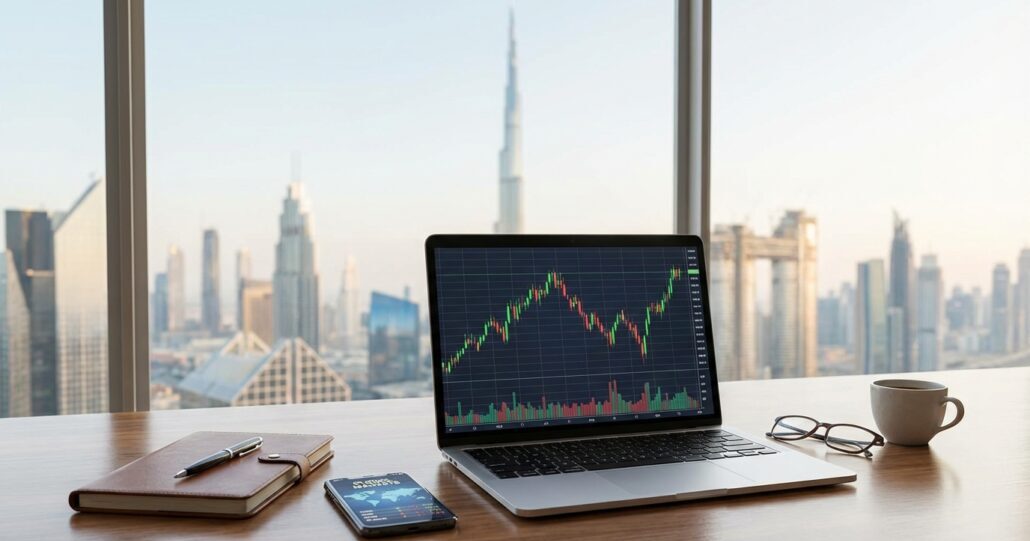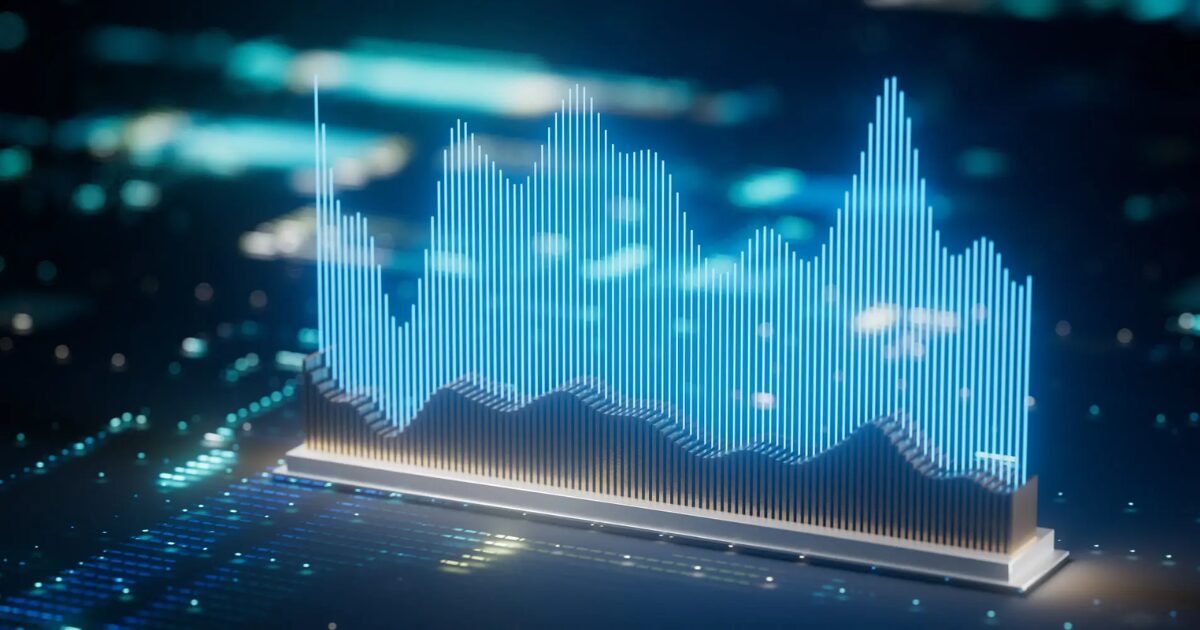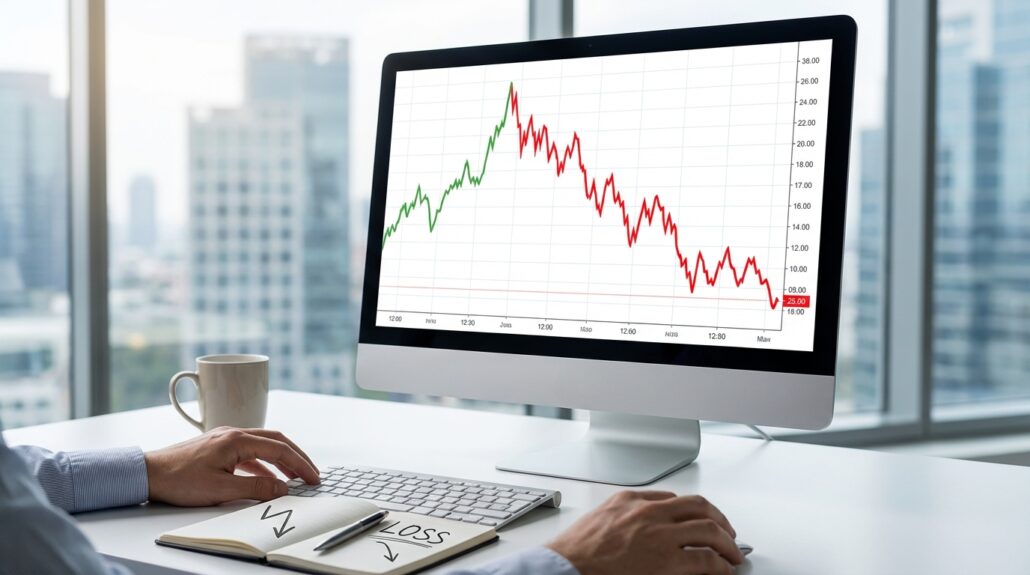Market Broker vs. Direct Market Access: Key Differences Explained
 Sam Reid
Staff Writer
Sam Reid
Staff Writer 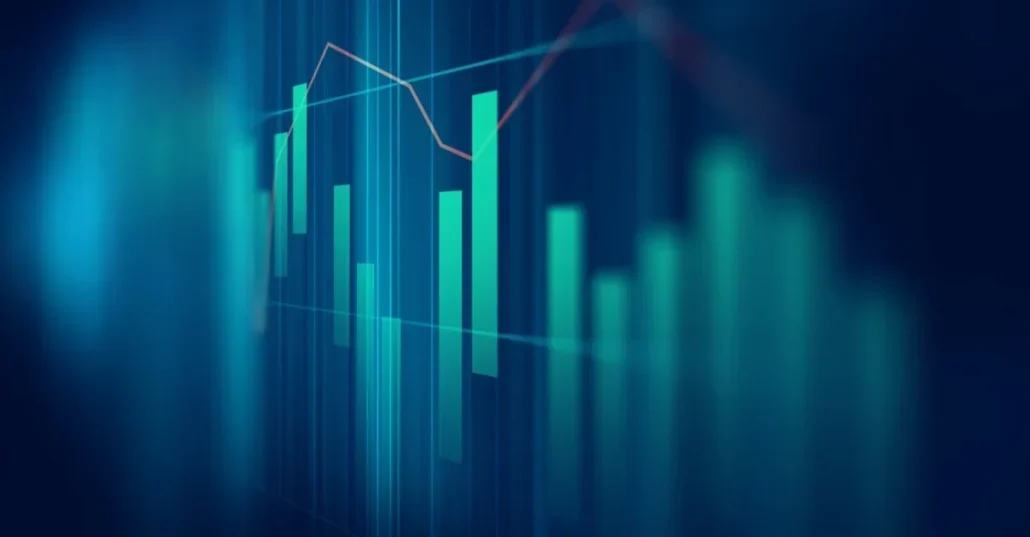
Summary
Direct Market Access (DMA) is often described as a game-changer for professional and tech-savvy traders, while market broker models remain the standard entry point for retail investors. Understanding the difference between these two models is crucial, especially for traders in regions such as the UAE, where regulatory standards and trading technology continue to evolve rapidly. This article breaks down the mechanics, benefits, and limitations of each model, explores how technological advances shape them, and provides actionable insights for traders deciding which route best suits their goals.
Introduction
Trading has undergone significant transformation in the last two decades. Retail trading apps, once seen as revolutionary, now share the stage with more advanced systems that give traders direct access to markets. The global spotlight on Direct Market Access intensified after high-profile events like the GameStop and AMC surges in 2021, when retail brokers were accused of restricting trades to protect their liquidity providers. These controversies highlighted the structural differences between trading through a market broker vs. direct market access broker models.
For UAE traders in particular, understanding these differences is not just theoretical. With regulators such as the Dubai Financial Services Authority (DFSA) and Abu Dhabi Global Market (ADGM) pushing for higher transparency, the choice of broker model impacts everything from execution speed to trading costs.
What Is a Market Broker?
A market broker, often referred to as a market maker, is a firm that acts as the counterparty to its clients’ trades. Instead of passing orders directly to the exchange, the broker sets bid and ask prices and profits from the spread.
How It Works
When a trader buys a CFD on gold at $3000 through a market broker, the broker internally sets the quote. The trader’s position is not routed directly into the underlying market. Instead, the broker manages the risk, hedging positions when necessary, while profiting from spreads or client losses.
Pros of Market Brokers
- Accessibility: Easy account setup, low minimum deposits, and simplified interfaces attract beginners.
- Fixed spreads: Many brokers guarantee spreads, providing cost predictability.
- Lower upfront technology demands: Traders only need the broker’s platform, not expensive infrastructure.
Cons of Market Brokers
- Conflict of interest: Since brokers profit when clients lose, transparency concerns exist.
- Slippage risks: Execution speeds may lag during volatile markets.
- Artificial pricing: Prices can deviate from the real market, which matters for scalpers and algorithmic traders.
What Is Direct Market Access (DMA)?
A direct market access broker enables clients to place orders directly into exchange order books without interference. Instead of acting as the counterparty, the broker facilitates connectivity to liquidity providers and market makers.
How It Works
When a trader submits an order through a DMA-enabled broker, it flows into the exchange where actual buy and sell orders are matched. Traders can even see Level 2 market data, which shows live depth-of-market with multiple bid and ask levels.
Pros of DMA
- Transparency: Orders are visible on the exchange order book.
- Better pricing: Traders can select liquidity providers offering the best rates.
- Faster execution: Direct connection reduces latency.
- Rebates for liquidity provision: In some cases, traders are paid for adding orders to the book.
Cons of DMA
- Complexity: Requires advanced knowledge and trading strategies.
- Higher costs: Some brokers charge commissions or fees for DMA services.
- Technology requirements: Robust infrastructure and reliable connectivity are necessary.
Market Broker vs. Direct Market Access Broker: Core Differences
When comparing market broker vs. direct market access broker, the differences extend far beyond pricing. Each model affects execution, transparency, and suitability for different trader profiles.
Order Execution
- Market Broker: Orders are filled internally, with the broker deciding whether to hedge in the real market.
- DMA Broker: Orders flow directly to exchanges, ensuring authentic market execution.
Transparency
- Market Broker: Traders see only the broker’s quotes, not the full market depth.
- DMA Broker: Traders gain access to Level 2 data, showing real buy and sell orders.
Speed
- Market Broker: Execution can face delays due to internal processing.
- DMA Broker: Execution is faster, making it ideal for high-frequency or scalping strategies.
Pricing
- Market Broker: Typically profits from spreads, which may be wider during volatile conditions.
- DMA Broker: Provides raw market spreads, often tighter, though commissions may apply.
Suitability
- Market Broker: Best for beginners seeking simplicity and cost predictability.
- DMA Broker: Best for advanced and algorithmic traders who prioritize speed and transparency.
Examples of Direct Market Access Brokers
Globally, several brokers specialize in DMA services. Some names include:
- Interactive Brokers: A major player valued at over $30 billion, known for offering DMA globally.
- Lightspeed: Offers DMA and advanced trading tools for professionals.
- SpeedTrader Pro: Provides advanced order routing and Level 2 access.
- Real Trading (Prop Firm): Not a broker but offers traders DMA through funded accounts.
For UAE traders searching for the best direct access brokers uae, it’s worth reviewing brokers regulated by DFSA or ADGM. Interactive Brokers, for example, has strong presence in the region and aligns with UAE’s regulatory standards.
Case Study: GameStop and AMC Surge
In early 2021, retail traders on Reddit’s WallStreetBets community coordinated massive buys of GameStop and AMC. Brokers like Robinhood restricted orders, citing liquidity requirements. This incident exposed a major weakness of the market broker model: retail traders lacked transparency and control over order routing.
DMA brokers, on the other hand, would not have halted trades in the same way, since orders would flow directly to exchanges. This event continues to fuel demand for DMA among traders who value independence.
Technological Advances Shaping Broker Models
The landscape of market broker vs. direct market access broker competition is evolving thanks to technology.
Artificial Intelligence and Automation
DMA traders increasingly use AI-driven algorithms for arbitrage, scalping, and statistical analysis. Market Makers also use AI but primarily to adjust spreads and hedge risks.
Latency Reduction
Fiber-optic infrastructure and cloud systems have reduced latency. For DMA traders, this means near-instant order execution. Market brokers also benefit, but internal processing still introduces delays.
Customizable Platforms
Platforms like MetaTrader 5 now support advanced order types and APIs, empowering DMA users to build algorithmic systems. Market Maker platforms, in contrast, tend to prioritize user-friendliness over depth.
Big Data Analytics
DMA brokers integrate with big data platforms, enabling predictive modeling and faster decision-making. This synergy is critical for hedge funds and algorithmic trading desks.
Regulatory Oversight of DMA and Market Makers
Regulation ensures fair play and market integrity.
- In the US: The SEC Market Access Rule (Rule 15c3-5) mandates that firms with market access maintain strict risk controls. FINRA also monitors sponsored access agreements.
- In the UAE: The DFSA and ADGM enforce strict compliance, requiring brokers to demonstrate liquidity, client fund segregation, and risk control systems.
- Global Implication: Traders considering DMA should ensure brokers are licensed and compliant with local regulators to mitigate risk.
DMA vs Algorithmic Trading
A common confusion arises between DMA and algorithmic trading. They are not the same.
- DMA: Refers to how traders access the market.
- Algorithmic Trading: Refers to strategies that automate trade execution, often leveraging DMA for speed and precision.
DMA vs Direct Strategy Access (DSA)
Another important comparison is DMA versus Direct Strategy Access (DSA).
- DMA: Provides access to market makers and order books.
- DSA: Provides access to execute trades based on specific strategies. It often comes with lower transaction fees but less flexibility than DMA.
DMA vs Sponsored Market Access
Sponsored access occurs when a buy-side firm like a hedge fund leverages a sell-side firm’s DMA system under agreed terms. Unlike DMA accounts directly held by the trader, sponsored access requires heavy reliance on the sponsor’s risk controls.
Advantages of Market Brokers Despite Limitations
While DMA offers superior transparency and speed, market brokers retain some advantages:
- Ease of use: Platforms are designed for retail users.
- Legal protections: Regulations require brokers to secure the best available execution for clients.
- Lower costs for beginners: Fixed spreads simplify entry into trading.
Advantages of DMA in Modern CFD Trading
DMA shines in areas critical for advanced traders:
- Access to market depth for precision strategies.
- Superior execution speed, essential for high-frequency trading.
- Transparency and trust with no conflict of interest.
- Flexibility in order types, including iceberg and stop-limit.
Practical Tips for UAE Traders Choosing Between Models
- Beginners: Start with a market broker to learn fundamentals without overwhelming complexity.
- Experienced traders: Explore DMA brokers, especially those licensed in the UAE. Interactive Brokers and other global names with local presence provide a balance of trust and technology.
- Algo traders: DMA is the better option for integrating AI and advanced strategies.
- Cost-conscious traders: Evaluate commission structures carefully. While DMA may involve commissions, tighter spreads can offset costs.
Final Thoughts
The debate of market broker vs. direct market access broker reflects a broader evolution in trading. Market brokers provide simplicity and accessibility, making them suitable for beginners. DMA brokers, however, deliver transparency, speed, and real-market pricing, making them the preferred choice for professional and tech-savvy traders.
For traders in the UAE, where regulations emphasize security and transparency, choosing the right broker model should align with personal trading goals and experience levels. Understanding these differences equips traders to navigate markets more effectively and avoid common pitfalls.
FAQs
What is the difference between direct market access and direct strategy access?
Direct market access (DMA) provides traders with direct connectivity to exchanges and liquidity providers, allowing them to choose execution routes. Direct strategy access (DSA) is focused on executing trades through pre-set strategies with lower fees but less flexibility.
What is the difference between a market maker and a direct market access?
A market maker sets bid and ask prices and often acts as the counterparty to client trades. Direct market access allows traders to connect directly to the exchange order book, ensuring transparent and real-market execution.
What is the difference between direct market access and sponsored market access?
DMA accounts give traders direct control over their order routing. Sponsored market access involves a buy-side firm using a sell-side firm’s DMA system under strict agreements, with the sponsor maintaining control over risk systems.
What is the difference between direct market access and DSA?
DMA refers to the trading infrastructure that connects traders directly to markets. DSA refers to a model where trades are executed based on predefined strategies. The former prioritizes transparency and control, while the latter emphasizes efficiency through strategy automation.
 13th Sep 2025
13th Sep 2025


